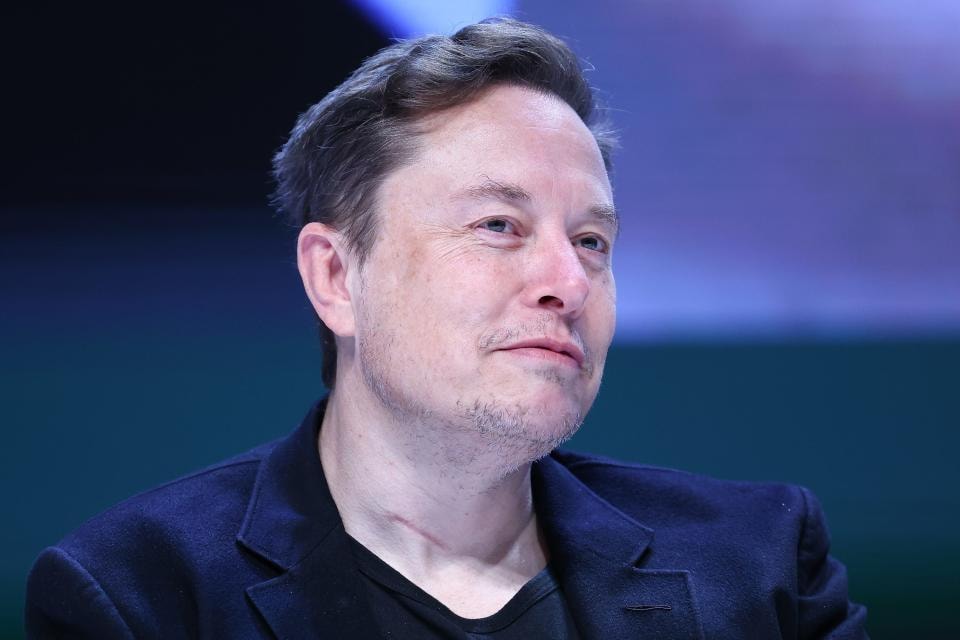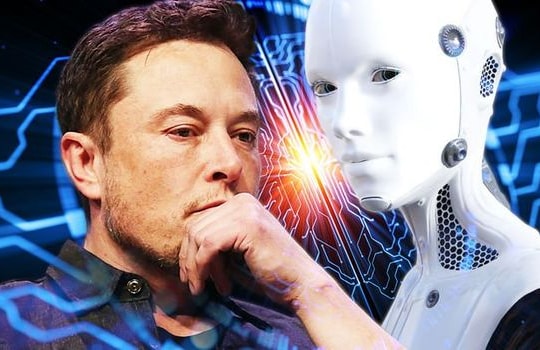Do Donald Trump's personnel choices worry Big Tech?
Since his re-election to his second term as President, Donald Trump has not only stirred up political debates but also posed major challenges to the "technology giants" (Big Tech), by choosing harsh critics of these large technology companies.
Donald Trump has carefully built a loyal, steadfast team that he plans to put in key positions during his second term as President. Notably, among them are many prominent faces, people known for their strong and uncompromising criticism of Big Tech.
Tech giants like Google, Apple, Meta, Amazon and Microsoft are facing a clear threat as Trump begins to map out his second-term presidential lineup. He has picked figures like Matt Gaetz, his nominee for Attorney General, and Brendan Carr, his nominee to head the Federal Communications Commission (FCC), both known for their tough stance on Big Tech.

With threats of escalating action against the tech industry if he returns to the White House, Trump appears to be preparing for a confrontation that promises sweeping changes in the relationship between the administration and leading technology companies.
Contrary to Big Tech’s concerns, some Silicon Valley venture capitalists see a second Trump term as a golden opportunity, betting that his deregulatory policies could be a powerful catalyst, spurring innovation and sparking a new wave of startups. In their eyes, these changes would not only provide a competitive advantage but also usher in a promising era of growth for fledgling tech companies.
Here are Trump's strategic choices, revealing interesting things about his relationship with the tech industry.
Brendan Carr
Brendan Carr, who currently works at the FCC, has not hesitated to criticize big tech companies, calling them “censorship cartels.” He also contributes to the Heritage Foundation’s 2025 Project, where he has made the bold case that the FCC should take a leading role in repealing Section 230 – the cornerstone law that shields tech companies from liability for third-party content. With this tough stance, Carr is becoming a formidable figure in the legal battle with Big Tech.

As a close ally of Elon Musk, Brendan Carr recently wrote an editorial in theWall Street Journal, strongly criticized the FCC's decision to revoke $885 million in funding for Starlink – Musk's satellite internet project.
With his clear support for Starlink, Carr is likely to use his new position to push for other support measures that will not only help Starlink recover, but also strengthen its competitiveness against Kuiper, a rival satellite system from Amazon. This signals a new battle of wits in the satellite technology field between the tech giants.
Brendan Carr has been an outspoken supporter of a TikTok ban, a policy that Donald Trump pushed hard for in his first term but has since backed away from. The big question, however, remains: how, if he returns to the White House, will the Trump administration respond to growing pressure to force TikTok’s parent company, ByteDance, to cut ties with its Chinese owners? The issue is not just a policy exercise, but also a test of Trump’s hardline stance on national security and technology.
Matt Gaetz
Matt Gaetz, a former Florida congressman and Donald Trump's nominee for Attorney General, has long been one of the most vocal critics of big tech. Shortly after Trump was banned from a number of social media platforms following the 2021 Capitol riots, Gaetz accused the "tech giants" of seriously violating the free speech rights of the American people.
With this tough stance, Gaetz not only reflects his ideological affinity with Trump but also signals a challenging judicial policy for Big Tech.

Gaetz is also a strong advocate for strict antitrust enforcement, a stance that unexpectedly puts him on the same page as Lina Khan, the current chair of the US Federal Trade Commission (FTC). Gaetz has even paid Khan considerable praise, highlighting their shared commitment to confronting the overwhelming power of big tech corporations.
As a member of Congress in 2020, Gaetz tried to pass a package of bills that could have been one of the most significant antitrust reforms in decades.
At a House Judiciary Committee hearing last year, Gaetz expressed deep concerns about Google's "monopoly power." He urged Jonathan Kanter, the Assistant Attorney General in charge of the Antitrust Division, to continue vigorously pursuing cases against Google and other large tech companies. Gaetz emphasized the importance of reining in tech giants to protect fair competition and consumer rights.
Elon Musk
Elon Musk, Trump’s nominee to head the new Department of Government Efficiency, is a contradictory figure in his relationship with Big Tech. While he is a pioneering icon of the tech industry, Musk is also known for his harsh criticism of his fellow giants, making him both unpredictable and potentially a figure who could shape the future of Big Tech under the Trump administration.

Musk often uses his powerful influence on X – the social media platform he owns – to publicly criticize and challenge Google, creating notable public confrontations in the technology industry.
Musk is also embroiled in a bitter feud with Apple and CEO Tim Cook. Earlier this year, he even threatened to remove all Apple equipment from his companies, including Tesla, SpaceX, xAI, and X, after Apple publicly partnered with OpenAI, one of Musk's frequent tech rivals. The dispute underscores Musk's uncompromising stance toward tech giants he sees as working against his interests.
JD Vance
JD Vance, Donald Trump's pick for Vice President, has a long history of venture capital experience and has long been a vocal advocate of breaking up the tech giants. His tough stance not only reflects his vision of fair competition, but also lays the groundwork for more aggressive policies toward Big Tech in his new term.
.jpg)
JD Vance says his experience in Silicon Valley has made him wary of big tech companies. He has been quick to criticize Facebook and Apple, arguing that their business models depend on keeping users hooked to screens full of ads, increasing dependency and reducing quality of life. These criticisms show Vance is determined to confront Big Tech for the benefit of consumers.
He frankly commented that these "tech giants" are essentially operating as "parasites" on the economy, taking full advantage without creating commensurate value.
Vance has strongly called for breaking up Google to reduce the tech giant’s monopoly power, and he has not hesitated to express his admiration for FTC Chairwoman Lina Khan for her relentless efforts to confront Big Tech.

.jpg)

.jpg)

